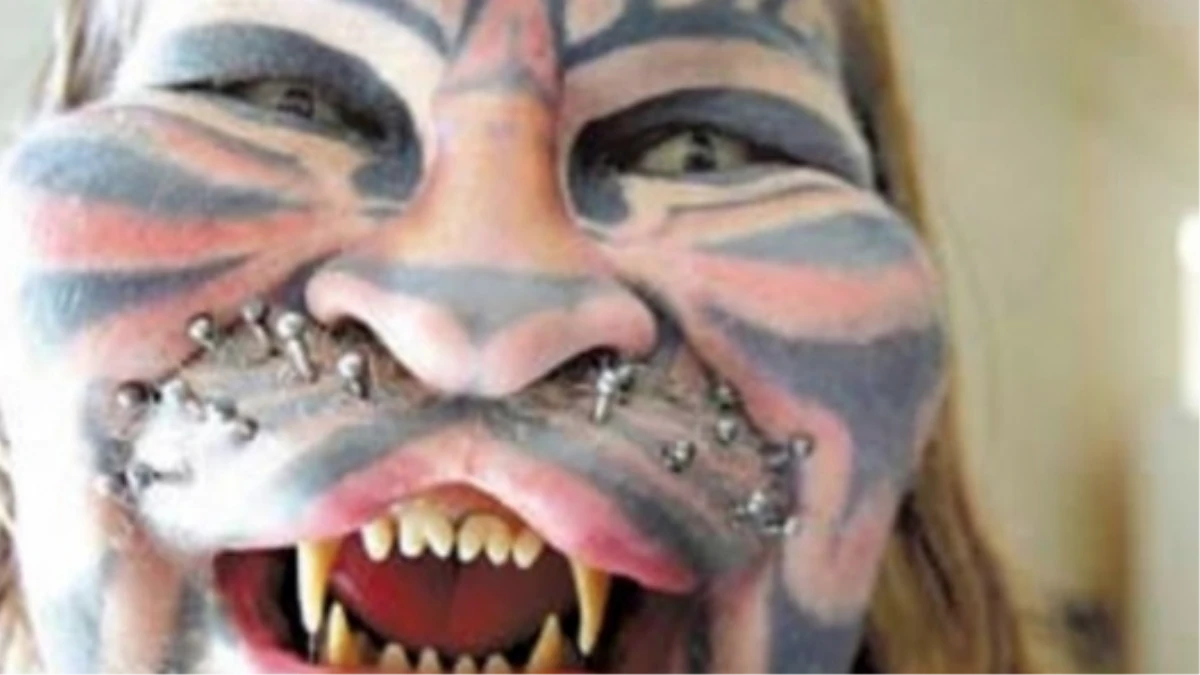
We’ve all heard about transgender people who believe they were born the wrong gender. Naia Okami, 27, is not only transgender…she’s also a wolf.
Fur and tail no-where to be seen, Okami, or “Wolf Girl” as she likes to be known on social media, told This Morning program hosts she’s part of a bizarre sub-culture known as ‘otherkin therian’ whose members believe they have the soul of an animal species rather than that of a human.
“A therian is somebody who believes that they are a non-human animal on a personal, integral level,” she explained to baffled presenters Phillip Schofield and Rochelle Humes.
“Now this isn’t to say that we’re delusional. I don’t physically believe that I’m a wolf. It’s more of a spiritual and psychological identification as a wolf”.
Okami, who is originally from Seattle, said she first became obsessed with wolves as a child, recalling dreams where she would imagine herself as the predatory animal.
During her high school years, the now male-to-female transgender Okami said she felt more comfortable acting out her lupine fantasies privately in the woods where she would “vocalize” and “howl” to express her feelings.
An avid social media user, Okami first gained worldwide attention when she made the extraordinary claim in a viral video: “On all levels except physical, I am a wolf”.
But the howling Okami is far from the only animal-human out there. The ‘otherkin therian’ group boasts a huge number of followers from all over the world, some of whom even believe they are mystical creatures like mermaids, vampires or werewolves.
Vice spoke to Riviera from Australia who identifies as a dragon. Wearing a large hand-made magpie head-dress, Riviera explained that like Okami, he had dreamed and experienced ‘visions’ of himself as the mythical creature.
Riviera, who is also transgender, said:
“For many otherkin, it’s a quiet spiritual background to their lives, and not something that they can ever switch off.
“I believe our reality can be described using Plato’s allegory of the cave: We’re prisoners of our own flesh, and our ability to perceive reality is flawed and incomplete because it has to be filtered through our meat.”
For the trans-species community, wearing costumes is an integral part of their trans-process, but mediation, dreams and ritual also factor in.
Like transgender people, some transspecies or ‘otherkin’ have cosmetic surgery to alter their appearance so that they more resemble how they feel on the inside.
Body dysphoria or Body Dysmorphic Disorder is classed as a mental health disorder which the Mayo Clinic describes a “disorder in which you can’t stop thinking about one or more perceived defects or flaws in your appearance” which can include obsessing over perceived physical blemishes, muscle size, breast size, wrinkles or genitalia.
While the cause of the condition is unknown, the Clinic lists having blood relatives with Obsessive Compulsive Disorder (OCD), negative life experiences such as child abuse and/or other mental health conditions such as anxiety as potential ‘risk factors’.
Presumably, an individual who is already dysphoric about their gender may also be susceptible to other dysphoric feelings about their appearance or body.
Stressing that Body Dysmorphic Disorder can lead to substance abuse, self-harming or even suicide, the Mayo Clinic urges sufferers to seek the help of a mental health professional. It doesn’t mention cosmetic surgery.
If you are having suicidal thoughts, call a suicide hotline number. In the U.S., call the National Suicide Prevention Lifeline at 1-800-273-TALK (1-800-273-8255) or use its webchat at suicidepreventionlifeline.org/chat.
This story syndicated with permission from For the Love of News